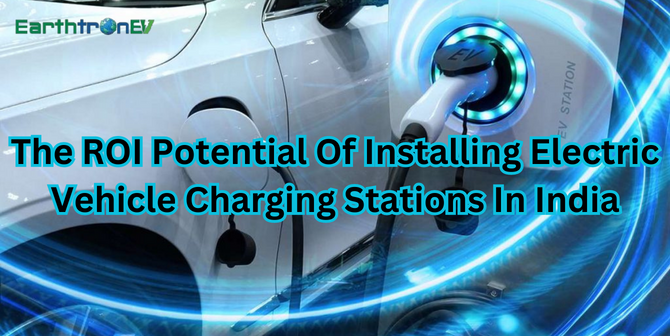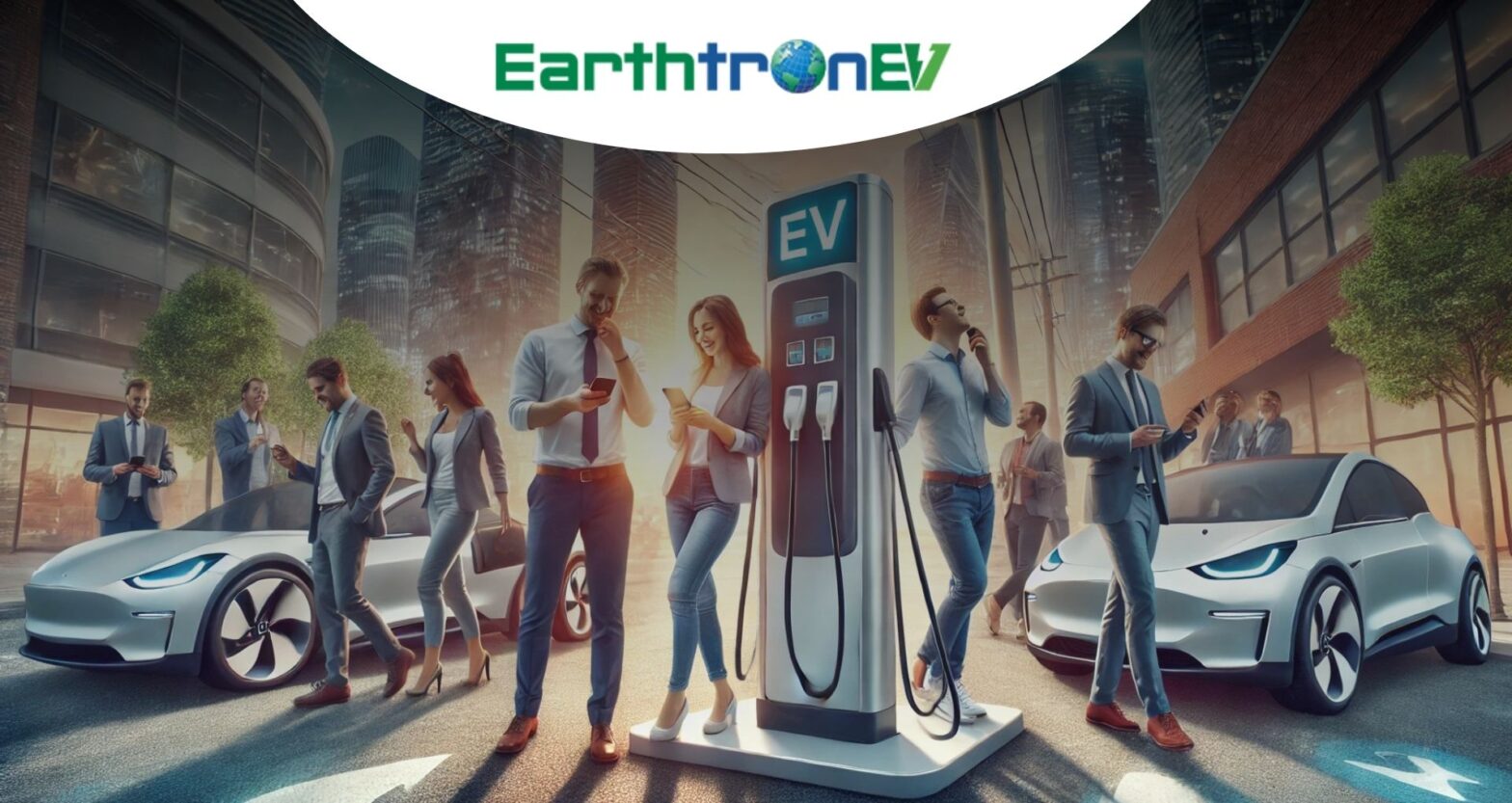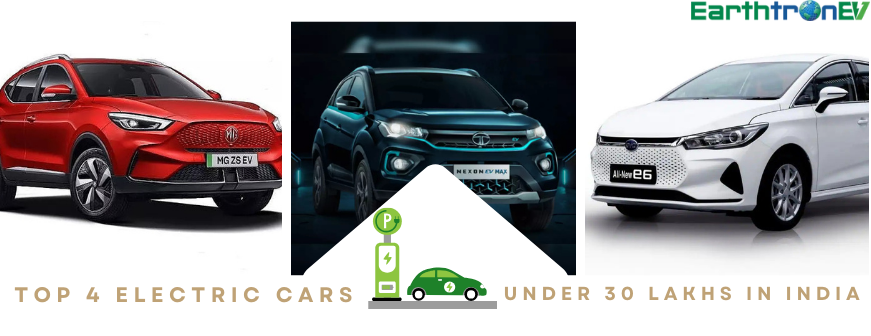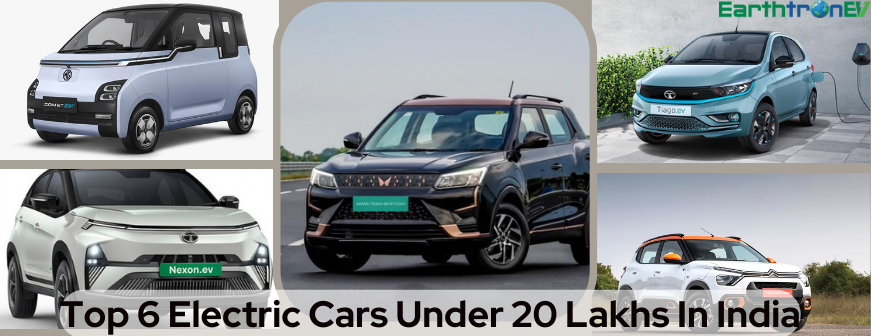India is on the cusp of a green revolution, and electric vehicles (EVs) are at the forefront of this change. To support this shift towards sustainable transportation, installing EV charging stations across the country has become an urgent need.
But beyond being just environmentally responsible, have you ever thought about how these charging stations could turn out to be profitable investments? In this blog post, we’ll explore the ROI potential of installing electric vehicle charging stations in India and why it’s not just good for the environment but also great for businesses looking to capitalize on new opportunities.
Introduction to Electric Vehicle Charging Stations in India
Electric vehicles are the future of transportation, and India is leading the charge with its ambitious plans to have all new vehicle sales be electric by 2030. To make this happen, the country is investing heavily in infrastructure, including a nationwide network of electric vehicle charging stations.
There are currently over 7,000 electric vehicle charging stations in India, with more being added every day. The majority of these are Level 2 chargers, which can charge an electric vehicle in around 4-6 hours. There are also a growing number of Level 3 (fast) chargers, which can charge a vehicle in under an hour.
The cost of installing an electric vehicle charger varies depending on the type of charger and the location, but it typically ranges from Rs. 1 lakh to Rs. 5 lakh. The return on investment (ROI) potential for charger installation is high, as there is currently a lack of charging infrastructure in India and demand is expected to grow exponentially in the coming years.
Installing an electric vehicle charger is a sound investment that will pay off in the long run as the adoption of electric vehicles increases in India.
Benefits of Installing EV Charging Stations
Electric vehicle charging stations offer a number of benefits for both businesses and consumers. For businesses, installing EV charging stations can be a great way to attract new customers and show that your business is environmentally friendly.
EV charging stations can also help you save money on your energy bills by using power during off-peak hours. And for consumers, electric vehicle charging stations provide a convenient way to recharge your vehicle’s battery, whether you’re at home or on the go.
Cost and Investment Involved
The cost of installing an electric vehicle charging station depends on various factors, such as the charger’s type, the charger’s capacity, the installation’s location, and the number of stations required.
For example, a basic Level 1 charger (220V AC) costs around Rs. 1 lakh, while a fast-charging DC station (50kW DC) would cost approximately Rs. 10 lakhs. The investment required for setting up an EV charging infrastructure will also vary depending on the scale and ambition of the project.
A small-scale installation at a residential complex or office building would require a few lakhs of investment, while a large-scale project like setting up a network of fast-charging stations across a city could run into crores.
Despite the initial investment required, there is a strong case to be made for investing in electric vehicle charging infrastructure in India. With the Indian government committed to electrifying all new vehicle sales by 2030, there is going to be a sharp increase in demand for EV chargers in the coming years.
Moreover, as EVs become more popular, it is likely that charging stations will become revenue-generating assets, through advertisements or user fees. Given all these factors, investing in EV charging infrastructure today could yield significant returns in the future.
Return on Investment Calculation
When it comes to electric vehicle (EV) charging infrastructure, the question of return on investment (ROI) is always top of mind for decision-makers. After all, investing in EV charging stations is a significant upfront cost that must be offset by long-term savings and revenue generation.
To calculate ROI, we first need to consider the total cost of ownership (TCO) of an EV charger. This includes the purchase price, installation costs, and ongoing maintenance and operations expenses. We also need to factor in any government incentives or subsidies that may be available.
Once we have the TCO, we can then calculate the payback period – this is the length of time it will take for the savings from using an EV charger to offset the initial investment. For example, if the TCO of an EV charger is Rs 100,000 and it saves Rs 10,000 per year in electricity costs, the payback period would be 10 years.
We need to consider the lifetime of the EV charger. Most chargers have a lifespan of around 20 years. This means that over the course of its lifetime, an EV charger will generate Rs 200,000 in savings (Rs 10,000 x 20 years). This sum can then be used to calculate the internal rate of return (IRR), which is a measure of how much return on investment an enterprise can expect.
Advantages of Installing EV Charging Stations in India
Electric vehicles are the future. Not only are they more environmentally-friendly than traditional petrol or diesel cars, but they’re also more efficient and cheaper to run in the long term.
Installing EV charging stations in India makes perfect sense, from a business and environmental perspective. Here are some of the key advantages of doing so:
1. You’ll be ahead of the curve
Electric vehicles are still relatively new in India, which means there’s enormous potential for growth in this market. By installing EV charging stations now, you’ll be well-positioned to take advantage of this as electric vehicles become more popular in the coming years.
2. You’ll improve your green credentials
As well as being good for business, installing EV charging stations is also great for your company’s environmental credentials. It sends a strong message that you’re committed to sustainability and reducing your carbon footprint.
3. You’ll attract new customers
Installing EV charging stations will make your business more attractive to electric vehicle owners, who will appreciate being able to charge up while they’re shopping or dining out. This could help you to attract new customers and boost your sales.
Challenges Faced in Setting up EV Charging Stations
Electric vehicle charging stations can be a great addition to any business, but there are some challenges that need to be considered before making the investment.
1. Initial Cost: The upfront cost of installing an EV charging station can be significant, and it may not be immediately clear what the return on investment (ROI) will be. Businesses need to carefully consider the total cost of installation and operation, as well as any potential revenue from EV users, before making a decision.
2. Infrastructure Requirements: Installing an EV charging station also requires adequate electrical infrastructure to support the additional power draw. This can be a challenge for businesses that are not already connected to the grid or do not have access to reliable power.
3. Operational Costs: Once installed, businesses will also need to factor in the ongoing costs of operating an EV charging station, such as electricity consumption, maintenance, and repairs. These costs can add up over time and eat into any potential profits from offering this service.
4. Regulation: There may also be local regulations that need to be considered before installing an EV charger. These regulations can vary from city to city and change over time, so it’s important to stay up-to-date on the latest requirements.
5. Competition: In some areas, there may already be a large number of EV chargers available, which could make it difficult for businesses to attract customers. This is something that needs to be taken into account
Government Incentives and Policies for Investors
Electric vehicles are the future. Not only are they more environmentally-friendly than gas-powered cars, but they’re also more efficient and cost-effective in the long run. That’s why many countries are incentivizing their citizens to switch to EVs by offering government incentives and policies.
In India, the government is giving investors a number of reasons to install EV charging stations. For one, the country is aiming to have 30% of its vehicles electric by 2030. To meet this goal, the government is offering subsidies of up to 2.5 lakh rupees (about $3500) per charger installed. Additionally, investors can take advantage of accelerated depreciation – meaning they can write off a certain percentage of the investment value in the first year itself.
The government is also providing support in terms of land availability and power supply. For instance, the Delhi Development Authority has set aside land for setting up charging infrastructure, and state-run power companies are offering discounts on electricity tariffs for charging stations.
Investors who install EV chargers can not only avail themselves of these benefits but also help contribute to the country’s goal of reducing its carbon footprint. With so many advantages, it’s no wonder that investing in EV charging infrastructure is becoming increasingly popular in India.4
Why Choose Us?
The goal of Earthtronev is to provide environmentally friendly energy choices that can protect the society from climate change. Installing electric vehicle charging stations in India is a great move that can offer numerous benefits. Not only will it improve air quality and reduce pollution, but it will also have a positive impact on the economy.
Business owners may see an increase in their profits due to higher customer satisfaction rates, while government authorities can benefit from increased tax revenues. Investing in electric vehicle charging station franchise could be beneficial for all parties involved, leading to long-term economic growth and sustainability for India as a whole.







